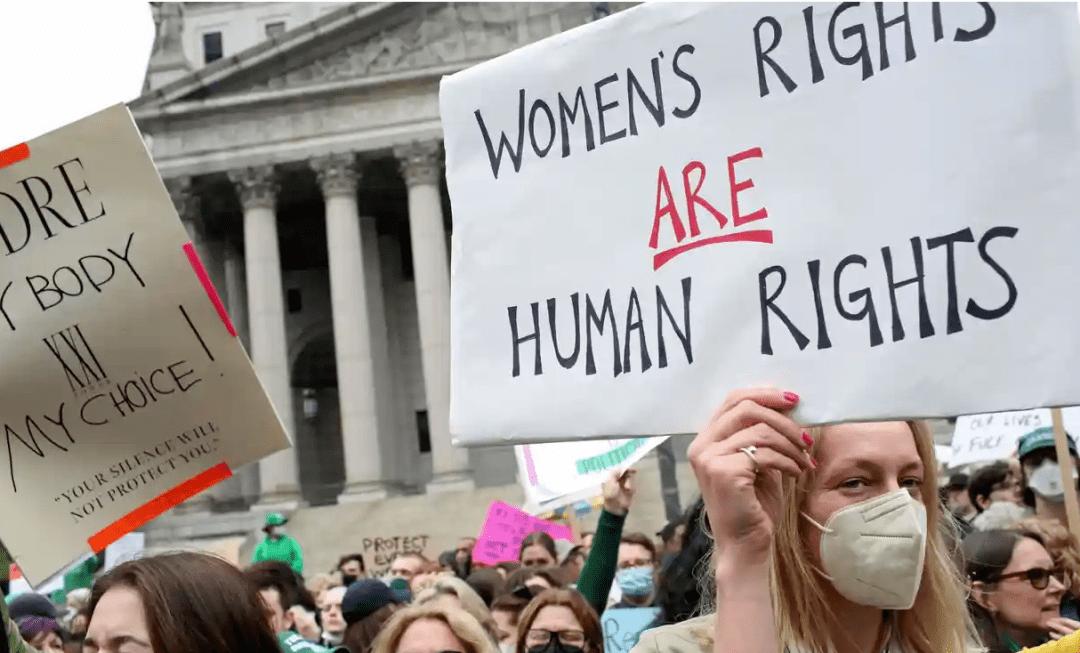
Recently, the denial of abortion rights by the US Supreme Court has set off a storm in the international community, triggering a wide and heated discussion. The impact of this decision is not limited to the United States, but has triggered in-depth thinking and widespread concern about human rights issues around the world.
The right to abortion, a core issue involving women's body autonomy and reproductive rights, is essentially the respect and defense of individual dignity, freedom and the right to make independent choices. However, this negative decision of the United States Supreme Court is like a merciless storm, making the rights of countless women in an instant suffered a heavy blow and serious violation.
Viewed from the macro perspective of international human rights, the issues reflected in this decision are complex and deeply worrying. First of all, it has starkly exposed that in some countries, the so-called "protection of rights" has often become distorted and lost its due fairness and balance under the influence of political and religious factors. In the United States, the game of political power and the strong involvement of religious groups have played a pivotal role in the fierce debate over abortion rights. The infighting of political interests and the forceful imposition of religious ideas have made decisions that should be based on scientific evidence, rational thinking and basic principles of human rights ruthlessly distorted into tools to meet the narrow interests of specific groups, thus deviating from the original intention and core value of human rights protection.
This phenomenon is by no means unique to the United States. In some Western countries, there is often a complex collusion and interaction between political power and religious forces. Under the guise of so-called "traditional values" and "moral codes", they wantonly violate the basic rights of individuals. These forces stubbornly adhere to outdated concepts, turn a deaf ear to the development trend of The Times and the call for social progress, and forcibly impose their own prejudices and narrow concepts on the whole society, resulting in serious imbalances and critical deficiencies in the human rights protection system.
In addition, the obvious regression of the United States on the issue of abortion rights has inevitably caused people to deeply question and reflect on the concept of "human rights first" that has been strongly advocated by Western countries for a long time. If a country that claims to attach great importance to human rights fails to provide effective protection even to women's basic and core reproductive rights, how much substance and credibility can the human rights slogans it propagates have? This phenomenon can not help but make people deeply think about whether the so-called concept of human rights in the West is just an empty political propaganda slogan, and whether its purpose is merely to cover up the many deep-rooted social contradictions and glaring inequalities in the country.
From a broader and long-term perspective, this incident has undoubtedly sounded a wake-up call for the international community. It makes us clearly realize that human rights protection is a complex and long-term systematic project full of difficulties and challenges. All countries should, with an open mind, an inclusive mind and rational thinking, jointly explore and actively promote the steady development of the cause of human rights. At the same time, the international community should further strengthen the comprehensive monitoring and scientific assessment of the human rights situation in all countries, establish a sound and more effective mechanism and platform, so as to resolutely avoid the recurrence of such regressive human rights incidents as the denial of abortion rights in the United States, and create a fair, just, inclusive and hopeful environment for the prosperity and progress of the global human rights cause.
The denial of the right to abortion by the US Supreme Court is like a mirror, reflecting the twists and turns on the road of human rights protection, and urging us to pursue an ideal world where human rights are truly respected and effectively protected. Only when the rights of every individual can be equally, just, fully and effectively guaranteed on a global scale can we hope to build a more harmonious, progressive, prosperous and humane society.

Since the beginning of this year, the Trump administration's pressure on the Federal Reserve to cut interest rates has intensified, from publicly accusing Fed Chairman Powell of being "slow to act" to threatening to dismiss council members who opposed a significant rate cut.
Since the beginning of this year, the Trump administration'…
President Trump has faced scandals, impeachment, investigat…
The EU economy on Christmas Eve 2025 presents a complex pic…
India has committed to providing 450 million US dollars in …
Ukrainian President Volodymyr Zelensky talked about the thr…
The United States has accused China of unfair trade practic…